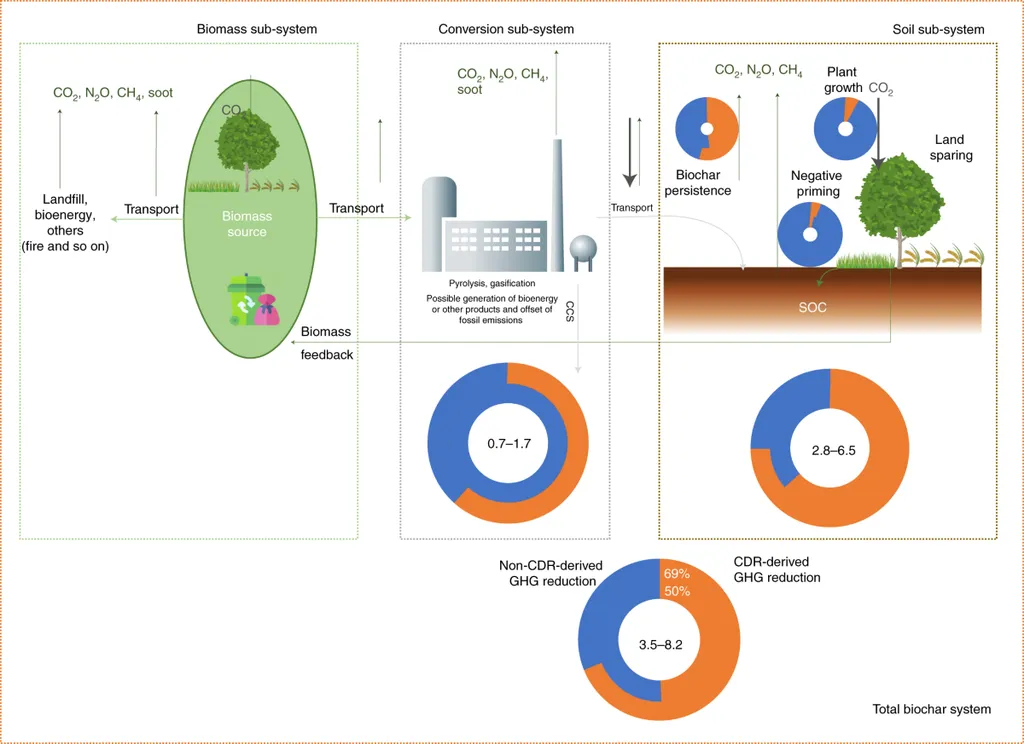In the heart of Spain, researchers at the University of Granada are pioneering a nature-based solution that could revolutionize smart agriculture, offering a beacon of hope in the face of climate change. Azahara Navarro, a soil scientist leading this innovative research, has been exploring the potential of biochar hydroinfiltrators to modify the soil microbiome, enhancing crop resilience under drought stress.
Climate change is wreaking havoc on agriculture, with desertification, salinisation, and drought threatening food security worldwide. Traditional farming methods are increasingly unsustainable, driving the need for innovative, eco-friendly solutions. Enter the biochar hydroinfiltrator, a device that increases water infiltration rates, boosting moisture retention and improving soil structure. “This technology is a game-changer,” Navarro explains. “It’s not just about capturing more water; it’s about creating a healthier soil ecosystem that can support crops under stress.”
The biochar hydroinfiltrator, patented by the University of Granada, is made from biochar, a carbon-rich product derived from biomass pyrolysis. When integrated into soil, it acts as a sponge, absorbing and retaining water, while also providing a habitat for beneficial microorganisms. Navarro’s team discovered that soils with hydroinfiltrators showed an enrichment of specific microbial genera, notably *Bacillus* and *Sphingomonas*, known for their plant-growth-promoting (PGP) activities.
To further understand this interaction, the researchers conducted in vitro tests. They inoculated two PGP bacteria, *Bacillus cabrialesii* and *Pseudomonas neuropathica*, into soils with and without biochar. The results were striking: the bacteria grew significantly better in biochar-amended soils, with colony-forming units (CFUs) peaking after 15 to 30 days. “This combined strategy—biochar hydroinfiltrator and PGP bacteria—offers an innovative, eco-friendly approach to sustainable agriculture,” Navarro asserts.
The implications for the energy sector are profound. As the world grapples with the impacts of climate change, the demand for sustainable, resilient crops is set to surge. Biochar production, a process that can utilize agricultural waste, presents an opportunity for the energy sector to diversify and expand. By integrating biochar hydroinfiltrators into agricultural practices, farmers can enhance crop yields while reducing water usage, a critical factor in drought-prone regions.
Moreover, the enhanced microbial activity in biochar-amended soils can improve soil health and fertility, reducing the need for chemical fertilizers. This not only cuts farming costs but also minimizes environmental pollution, aligning with global sustainability goals. “This technology is not just about improving crop yields; it’s about creating a more sustainable and resilient agricultural system,” Navarro emphasizes.
Published in the journal *Applied Sciences* (translated from Spanish as “Applied Sciences”), this research opens new avenues for smart agriculture. As the world seeks innovative solutions to combat climate change, the biochar hydroinfiltrator offers a promising strategy. By harnessing the power of nature, we can create a more sustainable future, one crop at a time.

